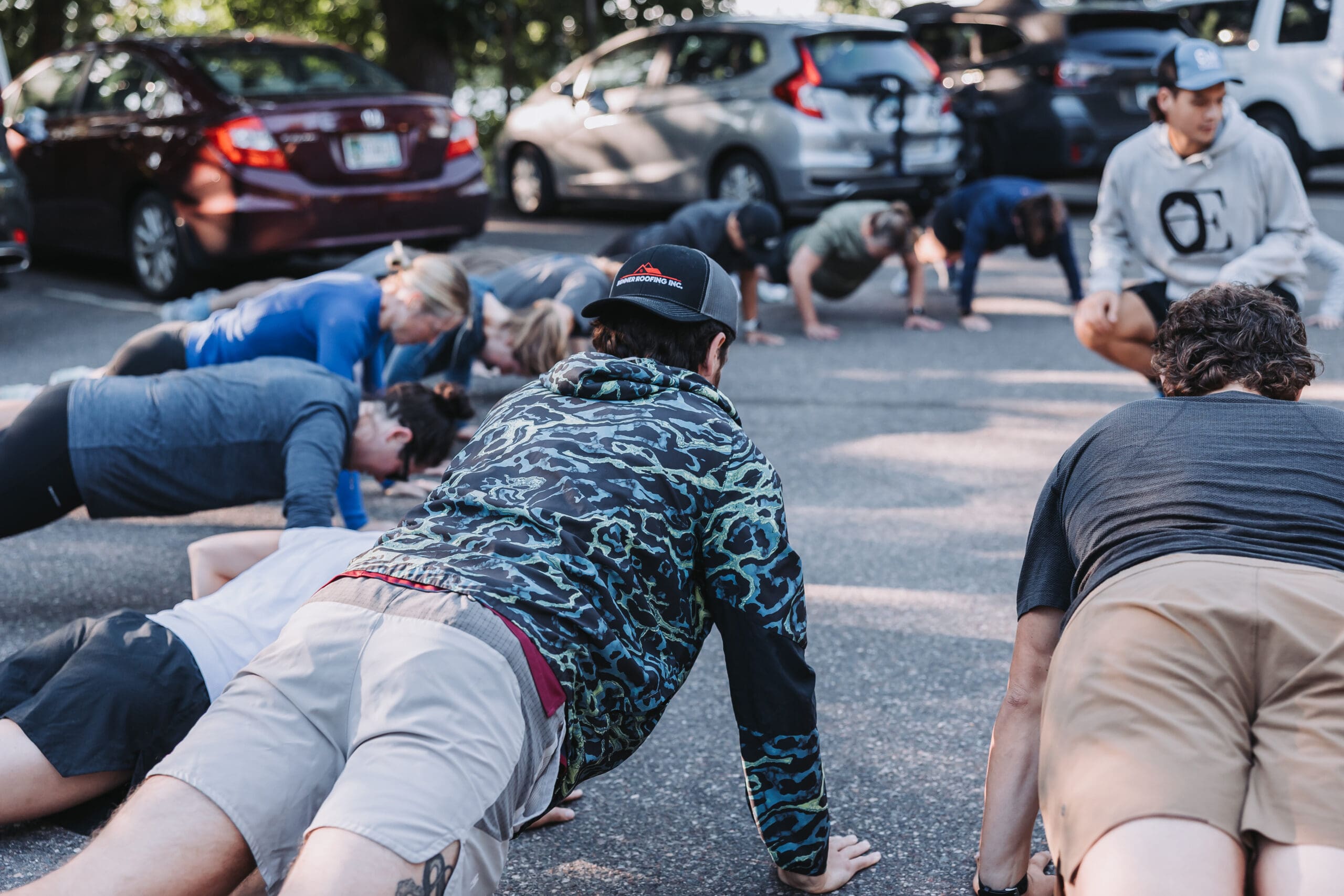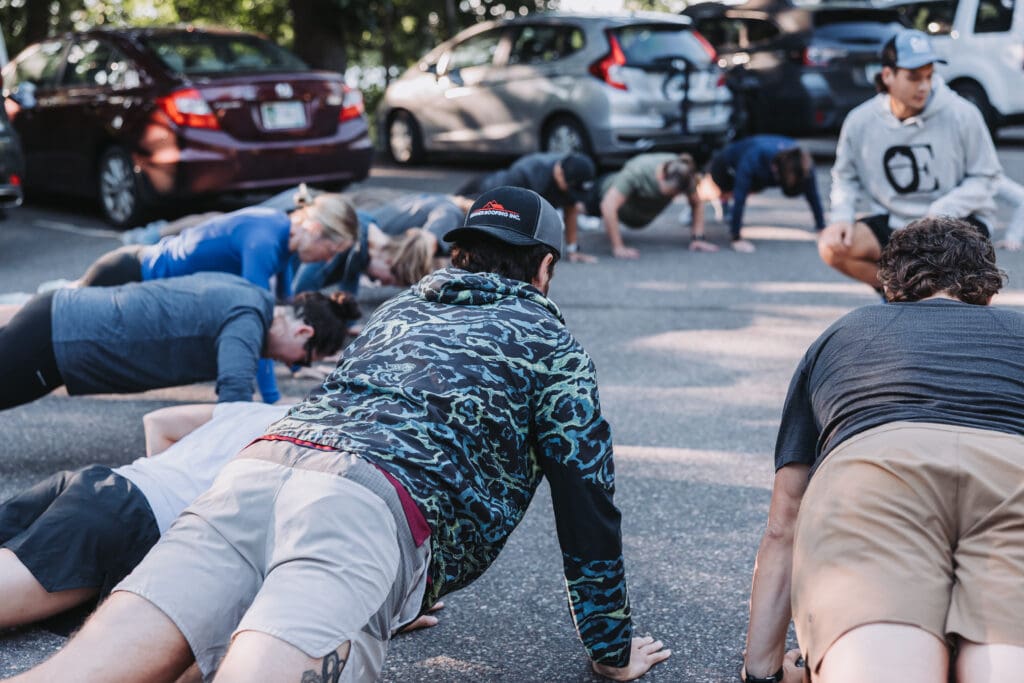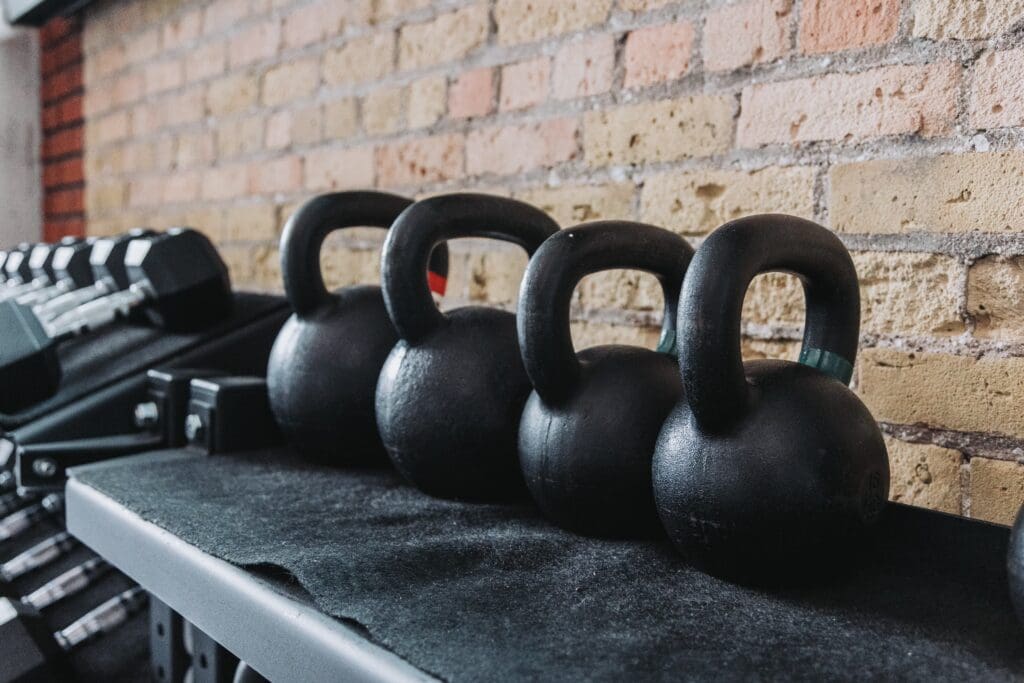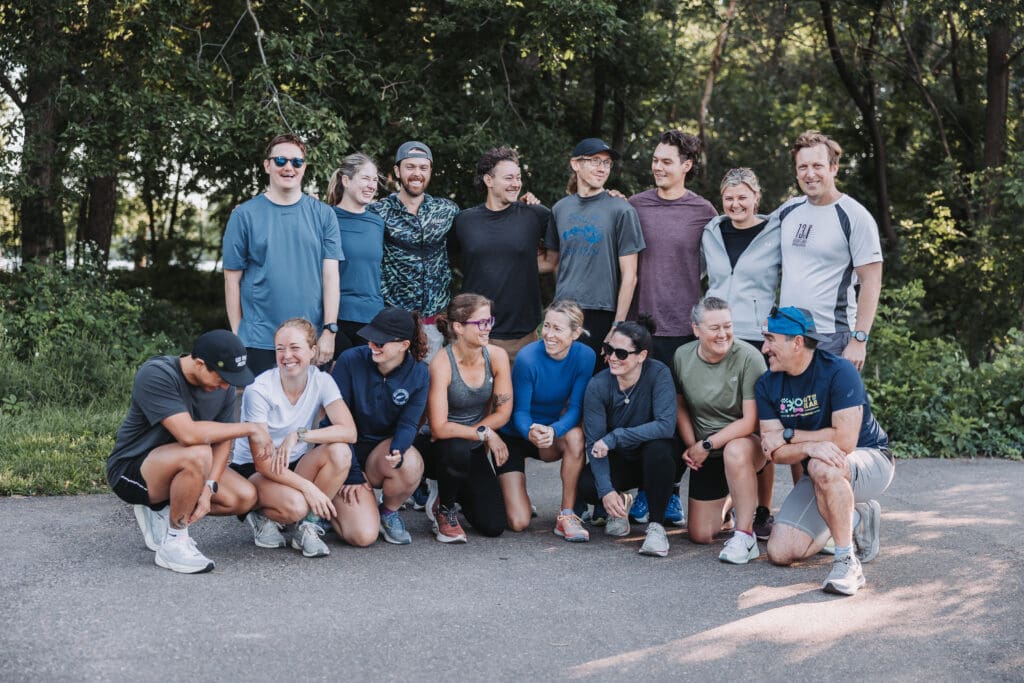
Stronger, Longer: Why Building a Strength Foundation Matters for Every Runner
October 29, 2025
Date
Category
Every runner wants to feel strong, confident, and capable when they line up on race day. Whether you are training for Grandma’s Marathon, your first 5K, or simply running to stay healthy, there is one piece of training that should never be optional: building a strength foundation.
Strength training for runners is not just about performance or muscle. It is about longevity. It is about your future. It is what keeps you moving well year after year and protects your body from breaking down. When I talk about strength with the athletes I coach at Oak Endurance, I want them to see it as a nonnegotiable. Not just because it helps them run faster, but because it helps them live better.
Building a strength foundation helps you move well, feel strong, and keep doing the things you love for years to come. It is one of the most important things you can do for your running career and your life.

Why Strength Always Matters
The biggest misconception I see among runners is that strength training is something that only matters during the offseason. Others believe it will make them bulky, slow them down, or take away from time they could be spending running. Some even think it does not make a difference for their running at all.
The truth is that strength training is one of the most powerful tools you have as a runner. It does not take away from your running. It enhances it. Strength helps you maintain form late in races, handle higher mileage, and stay injury free through tough training blocks.
Think of your running like a house. The miles you log are the walls and roof. They give your training structure and shape. But your strength is the foundation that holds it all together. Without it, everything eventually cracks.
When you build strength, you improve coordination, balance, posture, and control. You become more efficient with each stride. You are teaching your body how to produce and absorb force safely, which translates directly into better running economy and durability.
Strength training for runners is not extra work. It is the work. It is what allows you to handle the miles, stay healthy, and keep doing this sport for years. It is the foundation of both injury mitigation and performance.
Strength also matters beyond running. It keeps your joints and bones healthy, supports your metabolism, and gives you energy for everyday life. It allows you to do the things you love like running, hiking, lifting your kids, and carrying groceries all with confidence. When you train for strength, you are not just training for a race. You are training for life.
If you want to dive deeper into this topic, check out the episode below, from the We Get 2 Do This Podcast, where my cohost Kailee and I walk through the mindset and methods behind lifting as a runner:
Podcast Listen: From Pain to PRs (Part 1): The Strength Training Shift Every Runner Needs
The Pillars of a Strength Foundation
At Oak Endurance, our strength programming for endurance athletes is built around the seven human movement patterns. These are the foundation of how we move and how we run.
Every exercise, lift, and drill you do should connect back to one or more of these patterns: squat, hinge, lunge, push, pull, rotate, and gait. These movements are how your body is designed to function. When you train them, you are not just building strength in the gym. You are building a more coordinated, efficient, and durable stride on the road or trail.
For example, squatting builds the lower body control and landing strength you need with every step. A solid hinge improves your ability to drive power from your glutes. Lunges enhance single leg stability and balance. Pulling and pushing movements improve your posture and arm swing. Rotation and anti rotation drills stabilize your core so you can resist unwanted movement when fatigue sets in.
Running is not separate from these movement patterns. It is built on top of them. The more efficient you are at each pattern, the smoother and stronger your stride becomes.
If you want to explore these in more depth, check out:
YouTube Video: 7 Movement Patterns That Will Change Your Running
Blog Read: Runners: Why You Should Care About the 7 Human Movement Patterns

What a Strength Foundation Looks Like
When you are building a strength foundation, the goal is not to chase soreness or exhaustion. The goal is to develop strength that supports your running and keeps you healthy.
How Often to Lift
- Most runners benefit from two to three full body sessions per week during their general training phase.
- During peak training, aim to keep one to two sessions per week to maintain your strength and movement quality.
Sets and Reps
- Focus on 3-4 sets of 8-12 reps to build control and stability early on.
- As you progress, work in the 4-6 rep range with heavier weights and full recovery between sets of 1-3 minutes.
- If you’d like to progress further and get even more specific, I’d recommend starting with the podcast below for further guidance or working with a credible personal trainer that focuses on endurance athletes.
Podcast Listen: From Pain to PRs (Part 2): How to Lift Heavy, Progress, and Train Smarter Year Round
Exercise Focus
Base your workouts around compound lifts that follow the seven movement patterns but that are also specific to running. Examples below:
- Squat: Front squat or goblet squat to build lower body control and landing strength
- Hinge: Barbell hip extension or SL RDL for hip power and glute engagement
- Lunge: Reverse lunge or Bulgarian split squat for single leg stability
- Push: Swiss ball bench press or tricep push-ups to strengthen arm drive and posture
- Pull: Bird dog rows or face pulls to balance posture and prevent rounding forward
- Rotate or AntiRotate: Pallof press or medicine ball throw for core control
- Gait: Crawls, skips, or marches to tie strength work directly to running mechanics
How to Fit Strength Around Running
- Pair strength sessions with harder run days so recovery days stay easy.
- Avoid heavy lifting the day before your long run.
- View the gym as a tool that supports your running, not something that competes with it.
Even when your mileage peaks, one heavy lift per week is enough to maintain strength and prevent breakdown.
Common Mistakes Runners Make
Many runners avoid lifting because they think it will slow them down or make them heavier. In reality, lifting smart will do the opposite. It makes you more efficient, improves power output, and helps you maintain form when fatigue hits.
Another mistake is turning strength sessions into cardio workouts. If you are rushing through exercises with light weights and minimal rest, you are not actually building strength. You are just adding more endurance. True strength training should feel powerful, controlled, and intentional.
Final Thoughts
Grandma’s Marathon weekend is one of my favorite times of the year. The energy, community, and stories of growth remind me why I love this sport. But whether you are racing in Duluth or training for something else, your strength foundation is what will carry you through.
Strength training for runners is not extra work. It is the work that keeps you healthy, confident, and capable. It is what allows you to keep showing up for yourself, your goals, and the people around you.
So start now. Build your foundation. Your future self, the one still running, thriving, and doing what you love years from now, will thank you for it.

Written by Jacob Oak | Run Coach, Personal Trainer, and Gait Analyst at Oak Endurance
Oak Endurance helps endurance athletes move well and perform better through individualized run coaching, strength training, gait analysis, and community for runners in Minnesota and beyond.
close X